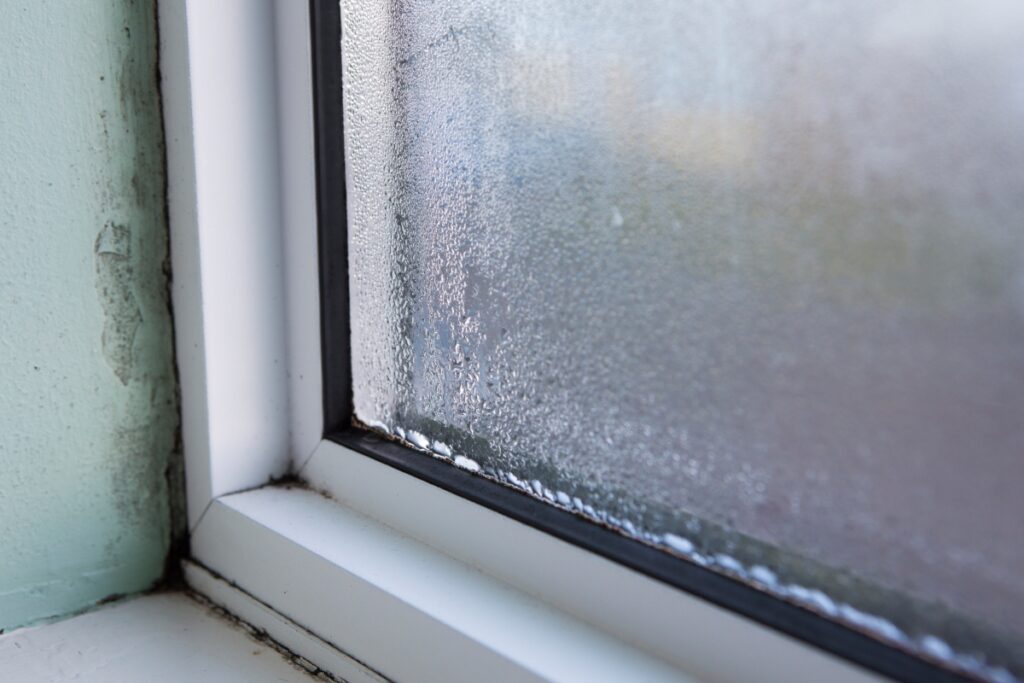Is condensation bad for you?
Condensation can appear in all properties, but its impact can be more harmful to certain individuals and scenarios. In this guide, we outline what condensation is, whether it is bad for your health, who is most at risk from condensation and how you can reduce the harmful risks condensation presents.
Contents:
- What is condensation?
- Is condensation harmful for your health?
- Symptoms and illnesses associated with condensation
- Who is the most at risk from condensation-related health problems?
- How can you reduce the risks from condensation in your home?
- If the condensation and mould are extreme, what can be done?
What is condensation?
Condensation is moisture from everyday living such as breathing, washing and cooking that attaches itself to cool surfaces and occurs where there is insufficient ventilation to handle the activities in the building.
Is condensation harmful for your health?
In small amounts most people should be fine but if condensation is allowed to build up and mould begins to form, those who already suffer from health issues may suffer further issues. Some people will experience cold-like symptoms as a result of condensation and, where there is a lot of condensation and mould, more serious conditions can develop.
Symptoms and illnesses associated with condensation
At the milder end of the scale, people can experience runny noses, sore throats and coughing as a result of condensation however, some people will also experience slightly more extreme symptoms possibly leading to rhinitis and sinusitis that will need treating. More extreme cases have involved black mould which has caused serious respiratory issues and in some cases, fatalities. A significant portion of childhood asthma cases have been linked to condensation, according to the World Health Organization.

Who is the most at risk from condensation-related health problems?
Anyone can experience difficulties due to condensation, damp and mould but the most at risk are:
- Babies and small children
- The elderly
- Those with existing skin conditions, such as eczema
- Those with existing respiratory problems, for example asthma and allergies
- Anyone with a weakened immune system
If you or those around you match any of the categories above, you should take steps to reduce any condensation as soon as possible. If you own the building, naturally you may be able to implement changes quicker but if not, you should contact the building manager, as they will have a duty of care to make sure any issues are dealt with.
How can you reduce the risks from condensation in your home?
Ensuring that your home is well-ventilated is one the first steps. You can aid this by opening windows or using the extractor fan when bathing and where possible, dry clothes outside or in an area with good airflow so that the washing is less likely to increase the internal atmospheric moisture load. An extractor fan either in the cooker hood or wall will also help to reduce the amount of condensation caused by cooking. Still suffering condensation issues? Condensation and damp specialists will be able to help you locate the source of the problem and how you can effectively deal with it.
If the condensation and mould are extreme, what can be done?
If your home or workplace is suffering from excessive condensation, damp or mould, you should call a condensation specialist like Cornerstone. We can investigate the level of condensation in your home and then act accordingly whilst causing the least disruption to your lives.
The sooner these problems are determined, the quicker they can be resolved and you can breathe easier. Get in touch on 02392 009 270 or via email enquiries@cornerstone-ltd.co.uk to arrange your consultation. We provide damp specialist services throughout Hampshire including Southampton and Portsmouth.

